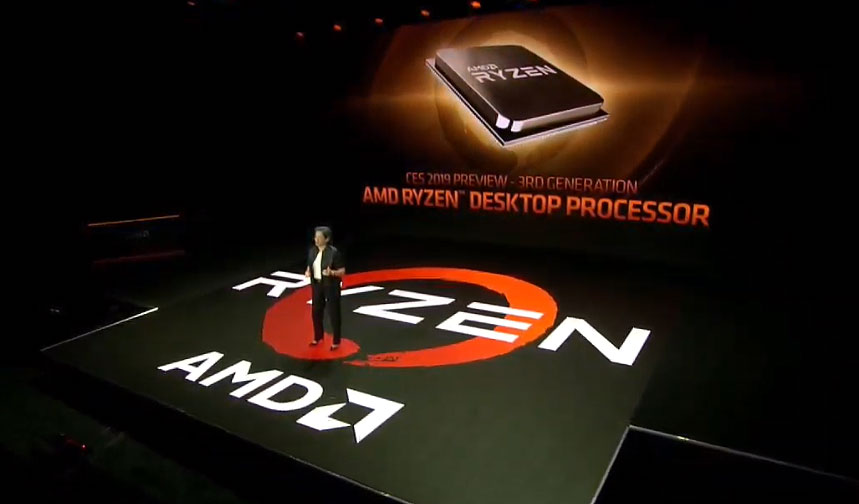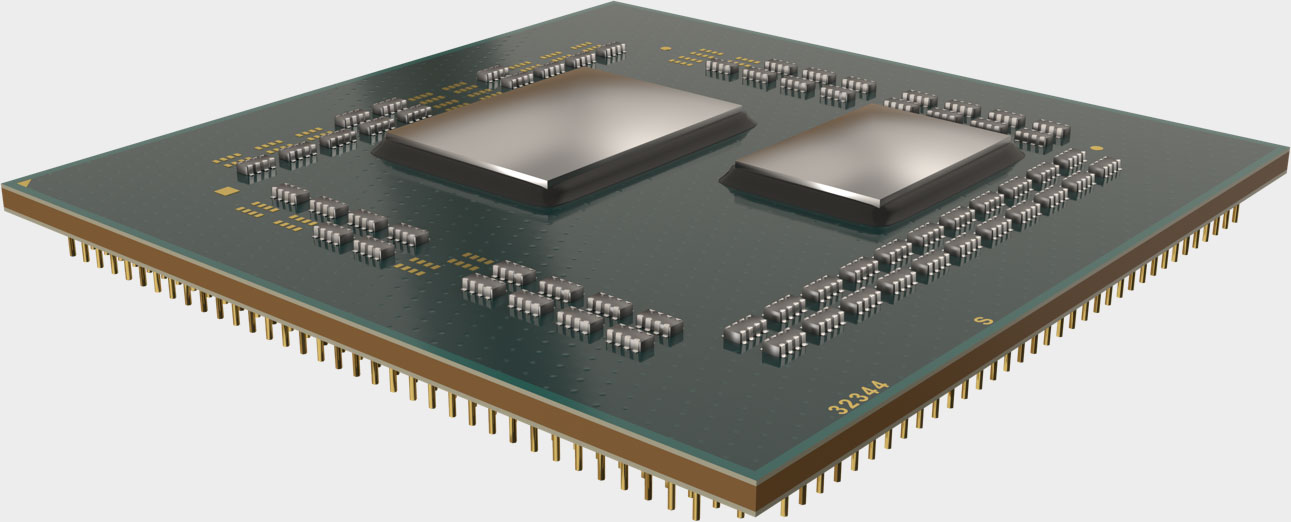AMD teases third-gen Ryzen processor performance ahead of mid-2019 launch
The next generation of Ryzen processors are on track to launch this year.

For the firs time, AMD provided a preview of a working third-generation Ryzen processor based on the company's 7-nanometer Zen 2 architecture. There are still many details to be revealed, but the big takeaway is that Ryzen is progressing on schedule, and should deliver impressive performance gains over AMD's current generation Ryzen products.
AMD says its Ryzen 3000 series will launch in the middle of 2019. We were actually hoping it would come out sooner, but the time frame is in line with AMD's roadmap, so it doesn't look like the company is running into any potholes or snags.

Third-gen Ryzen chips look a bit different than the current crop. AMD has adopted a chiplet design consisting of two dies. The smaller of the two is the 7nm Zen 2 die, and the larger one is an I/O die that feeds data between the Zen 2 engine and the rest of the system.
This particular model that AMD decided to show off is an 8-core/16-thread chip. It's an early sample, and AMD says it's still working out what the final frequency will be. In the meantime, AMD pitted the early sample against Intel's Core i9-9900K at stock speeds, and had both chips run through Cinebench R15.
Here's how the scores broke down:
- AMD 3rd-gen Ryzen (8C/16T): 2,057
- Intel Core i9-9900K: 2,040
It's impressive to see Ryzen hanging with (and slightly surpassing) Intel's flagship desktop consumer chip. To put it into further perspective, in our testing, a current generation Ryzen 7 2700X scores around 1,800 (1,809) in Cinebench and the i9-9900K scores 2,063. So, AMD is getting a 13 percent improvement in performance with its 7nm architecture at this early stage. That could mean a 15-20 percent jump by launch, once AMD has had time to further optimize things, both on the hardware and software (drivers) side.
The big question on our minds is if AMD improved latencies and such to close the gap in gaming performance. While we don't know the answer to that yet, but another interesting point here is the power envelope. In this controlled benchmark setting, the AMD system drew 133W, versus 180W for the Intel system.
Keep up to date with the most important stories and the best deals, as picked by the PC Gamer team.
There are two other notable bits. The first is third-gen Ryzen will be the first platform to support PCI Express 4.0. Secondly, AMD says its new CPUs will work in current socket AM4 motherboards, so existing platform owners will have a drop-in upgrade option. Those users likely won't benefit from whatever feature updates AMD's next-gen chipset offers (eg, PCIe 4.0), but at least it will be an option for users who don't want to overhaul their system.
Paul has been playing PC games and raking his knuckles on computer hardware since the Commodore 64. He does not have any tattoos, but thinks it would be cool to get one that reads LOAD"*",8,1. In his off time, he rides motorcycles and wrestles alligators (only one of those is true).


